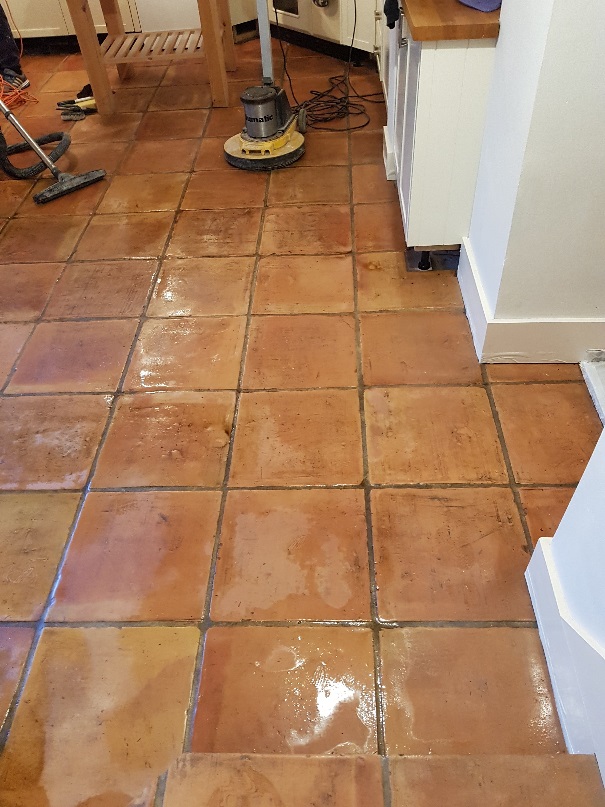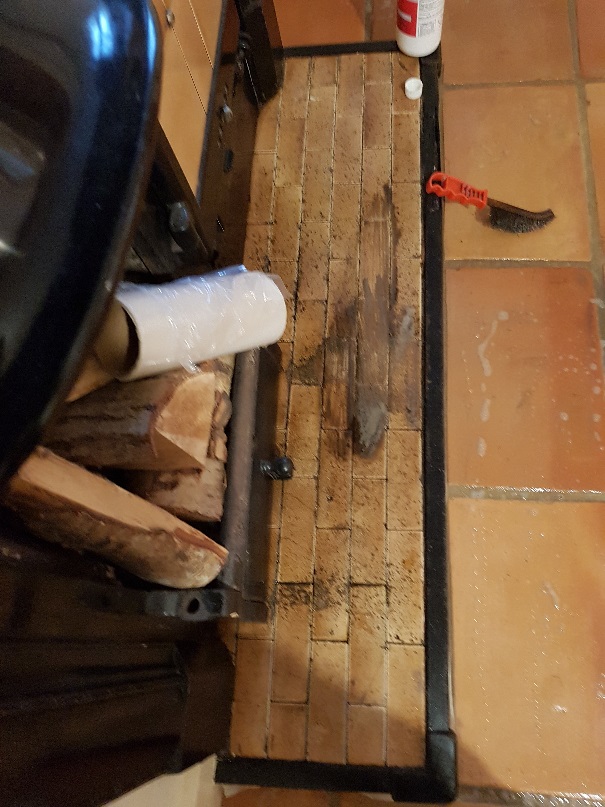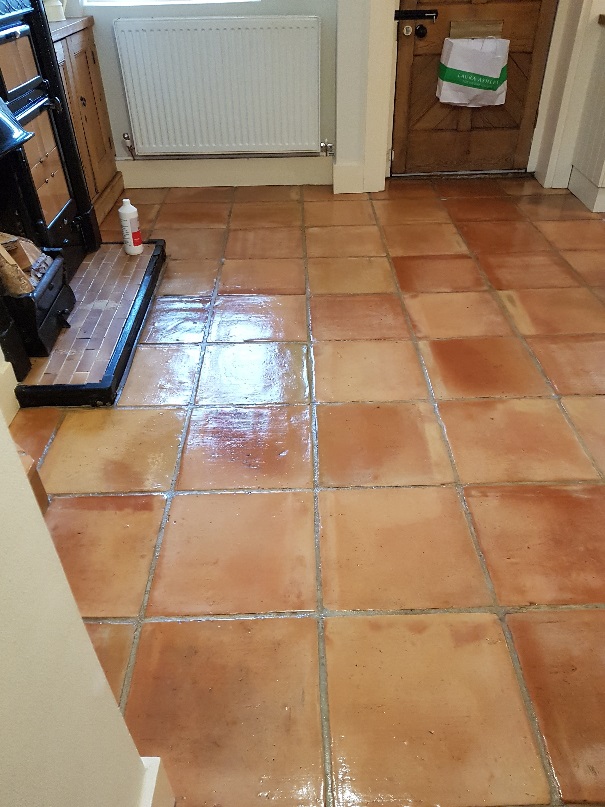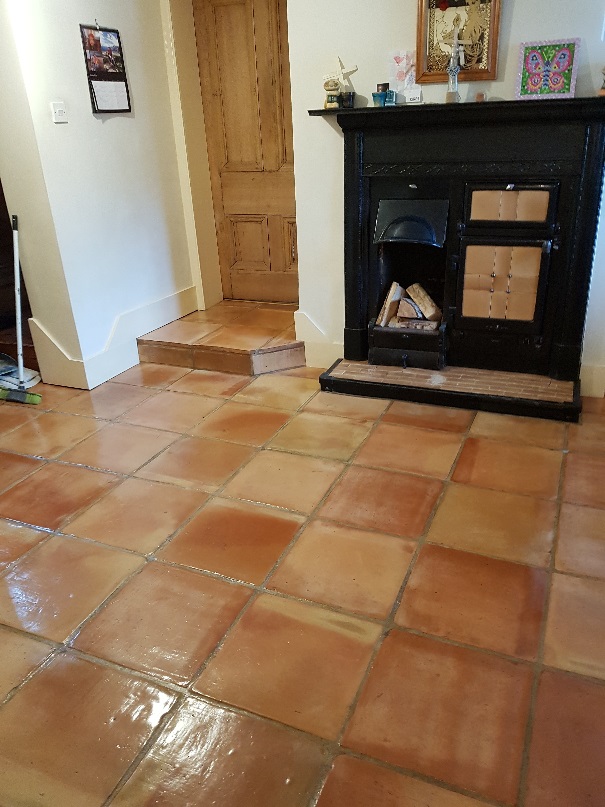 |
 |
The house was in Knutsford on the East side of Cheshire which was named as Best Place to Live in the North West” by the Sunday Times in 2017; being close to the Peak District and within easy reach of Liverpool and Manchester its easy to see why.
Deep Cleaning a Spanish Terracotta Tiled Kitchen Floor
My first task would be to completely remove the old sealer so the whole floor could be given a deep clean before resealing. It’s not a good idea to add a new sealer on top of another especially if you don’t know what was used before, it can also lead to a build of sealers on the tile which will darken their appearance. To do this I soaked the tiles in a strong dilution of Tile Doctor Remove and Go which is a powerful stripping and cleaning solution that’s designed to removes old coatings on tiles and draw out ingrained staining. After twenty to thirty minutes the solution was worked into the tiles using a black buffing pad fitted to a rotary buffer machine. I also used a wire hand brush along the grout lines to make sure they were cleaned as the scrubbing pad can fail to reach into the recess. It wasn’t long before the old sealer and dirt was released from the Terracotta which was then washed off the floor using water and a wet vacuum. |
 |
I inspected the floor at this stage and retreated any stubborn areas using the same process. I did have a few problems removing some greasy marks however I managed to get rid of these by applying Tile Doctor Wax Away worked in by hand with a scrubbing brush. Once I was happy that the floor was clean and free of old sealers it was given a final rinse to remove any trace of cleaning product, dried with the wet vacuum and left to dry out fully overnight.
Sealing a Terracotta Tiled Kitchen Floor
On my return the next morning I took a few damp readings to check the floor was dry before starting with the next step of sealing the tiles. All was well so began to add the first of multiple coats of Tile Doctor Seal and Go which is a water-based sealer that works really well on Terracotta and leaves a nice subtle sheen to the tile. Being was based it has the added advantage of not leaving a solvent smell as it dries. |
 |
The Terracotta took some time to seal completely, in fact ten coats of sealer were required to fully seal the tile. You can always tell when a tile is sealed by adding a small drop of water to the surface, if it forms into a bubble then its’ fully sealed.
 |
 |
I’m not sure you can appreciate the difference from my photographs but hopefully you can see that Terracotta tiles now look much fresher and the grout cleaner and lighter in colour.
Source: Terracotta Tile Cleaning and Sealing Service in East-Cheshire